Buffett On Inflation Over The Last 50 Years
There have been four key times when Warren Buffett has given his insights on inflation in Berkshire Hathaway’s annual reports since the 70s.
1979 – After explaining that Berkshire’s book value compounded 20.5% annually for the previous 15 years, Buffett comments: “But before we drown in a sea of self-congratulation, a further—and crucial—observation must be made. A few years ago, a business whose per-share net worth compounded at 20% annually would have guaranteed its owners a highly successful real investment return. Now such an outcome seems less certain. For the inflation rate, coupled with individual tax rates, will be the ultimate determinant as to whether our internal operating performance produces successful investment results—i.e., a reasonable gain in purchasing power from funds committed—for you as shareholders.”
1981 – After explaining results for 1981, Buffett says, “Unfortunately, earnings reported in corporate financial statements are no longer the dominant variable that determines whether there are any real earnings for you, the owner. For only gains in purchasing power represent real earnings on investment. If you (a) forego ten hamburgers to purchase an investment; (b) receive dividends which, after-tax, buy two hamburgers; and (c) receive, upon sale of your holdings, after-tax proceeds that will buy eight hamburgers, then (d) you have had no real income from your investment, no matter how much it appreciated in dollars. You may feel richer, but you won’t eat richer.”
1983 – Buffett explains why inflation can be so damaging: “Inflation takes us through the looking glass into the upside-down world of Alice in Wonderland. When prices continuously rise, the “bad” business must retain every nickel that it can. Not because it is attractive as a repository for equity capital, but precisely because it is so unattractive, the low-return business must follow a high retention policy. If it wishes to continue operating in the future as it has in the past—and most entities, including businesses, do—it simply has no choice.”
1984 – Buffett explains which businesses are hurt the least during times of inflation: “Any unleveraged business that requires some net tangible assets to operate (and almost all do) is hurt by inflation. Businesses needing little in the way of tangible assets simply are hurt the least. And that fact, of course, has been hard for many people to grasp. For years the traditional wisdom—long on tradition, short on wisdom—held that inflation protection was best provided by businesses laden with natural resources, plants, and machinery, or other tangible assets (“In Goods We Trust”). It doesn’t work that way. Asset-heavy businesses generally earn low rates of return—rates that often barely provide enough capital to fund the inflationary needs of the existing business, with nothing left over for real growth, for distribution to owners, or for acquisition of new businesses.”
But the best contribution (in my opinion) from Buffett on the topic of inflation was his 1977 article in Forbes. Here’s the key takeaway: “Inflation acts as a gigantic corporate tapeworm. That tapeworm preemptively consumes its requisite daily diet of investment dollars regardless of the health of the host organism.”
I recommend reading the full article here:







Leave A Comment